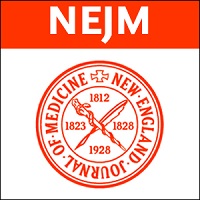Abstract
Background Proprotein convertase subtilisin/kexin 9 (PCSK9), one of the serine proteases, binds to low-density lipoprotein (LDL) receptors, leading to their accelerated degradation and to increased LDL cholesterol levels. We report three phase 1 studies of a monoclonal antibody to PCSK9 designated as REGN727/SAR236553 (REGN727). Methods In healthy volunteers, we performed two randomized, single ascending-dose studies of REGN727 administered either intravenously (40 subjects) or subcutaneously (32 subjects), as compared with placebo. These studies were followed by a randomized, placebo-controlled, multiple-dose trial in adults with heterozygous familial hypercholesterolemia who were receiving atorvastatin (21 subjects) and those with nonfamilial hypercholesterolemia who were receiving treatment with atorvastatin (30 subjects) (baseline LDL cholesterol, >100 mg per deciliter [2.6 mmol per liter]) or a modified diet alone (10 subjects) (baseline LDL cholesterol, >130 mg per deciliter [3.4 mmol per liter]). REGN727 doses of 50, 100, or 150 mg were administered subcutaneously on days 1, 29, and 43. The primary outcome for all studies was the occurrence of adverse events. The principal secondary outcome was the effect of REGN727 on the lipid profile. Results Among subjects receiving REGN727, there were no discontinuations because of adverse events. REGN727 significantly lowered LDL cholesterol levels in all the studies. In the multiple-dose study, REGN727 doses of 50, 100, and 150 mg reduced measured LDL cholesterol levels in the combined atorvastatin-treated populations to 77.5 mg per deciliter (2.00 mmol per liter), 61.3 mg per deciliter (1.59 mmol per liter), and 53.8 mg per deciliter (1.39 mmol per liter), for a difference in the change from baseline of −39.2, −53.7, and −61.0 percentage points, respectively, as compared with placebo (P<0.001 for all comparisons). Conclusions In three phase 1 trials, a monoclonal antibody to PCSK9 significantly reduced LDL cholesterol levels in healthy volunteers and in subjects with familial or nonfamilial hypercholesterolemia. (Funded by Regeneron Pharmaceuticals and Sanofi; ClinicalTrials .gov numbers, NCT01026597, NCT01074372, and NCT01161082.)







